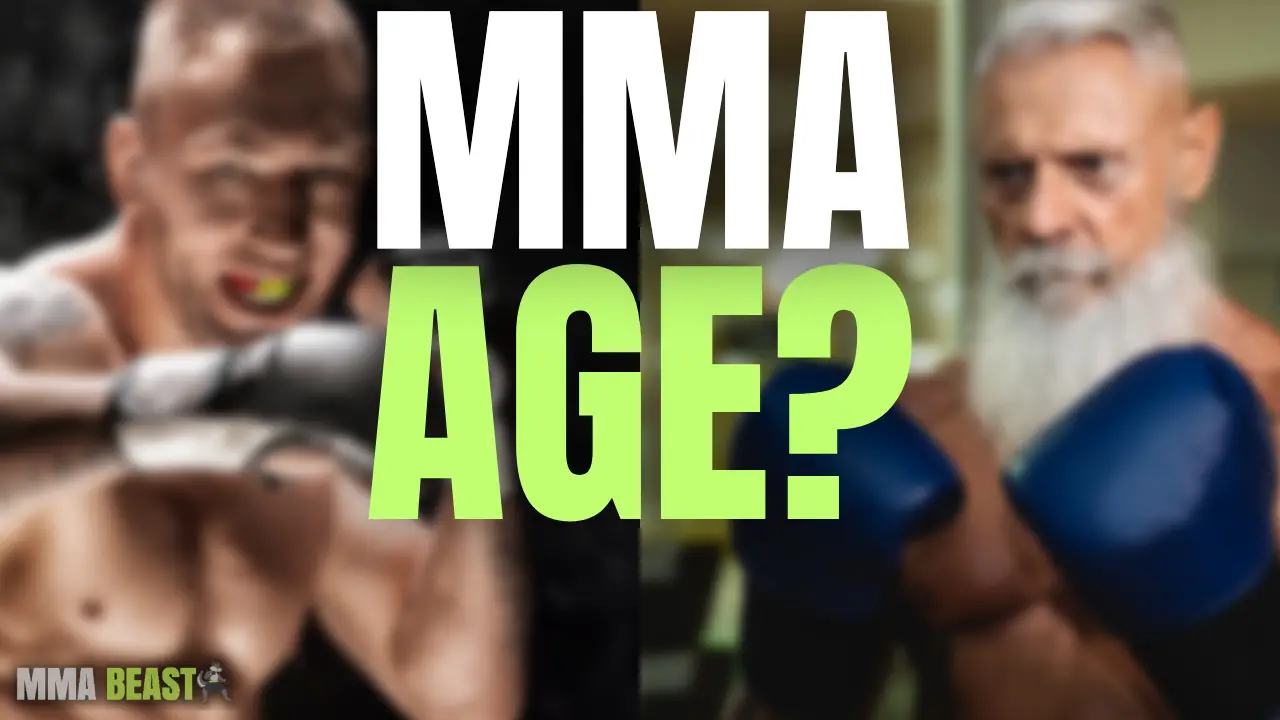
In most states and countries, MMA fighters do need a license in order to compete professionally. This usually involves passing a physical exam and having an up-to-date medical record on file. In the US to compete professionally you will need to be signed up with the Nevada State Athletic Commission. You can apply for your MMA National ID here.
If you are in the UK or other countries we advise checking with your instructors or event coordinators before competing to ensure you are correctly licensed.
MMA Fighters are professionally trained and as a result licensing helps ensure the safety of both fighters and the integrity of the sport by making sure that professional fighters have adequate training and experience.
If you’re interested in competing in MMA, it’s important to research the regulations and requirements in your state or region. And as always, make sure to train safely and responsibly under qualified coaches and instructors.
Why do MMA fighters need a license?
MMA fighters are people who’ve been trained to physically overpower other fighters using martial arts. Whether that is with punches, kicks or grappling.
MMA fighters are some of the most dangerous people on the planet. They are literally trained to be the best hand to hand fighters, they train against the best and compete against the best.
Naturally for people with such dangerous skill sets, it’s important to ensure that they stick to the rules of MMA and don’t abuse anyone with their fighting skills.
It’s for this reason that MMA fighters are licensed. They must stick to the correct rules and should they break rules they could have their license revoked and career ended.
How do MMA fighters get a license?

To become a licensed MMA fighter, you must first pass a physical examination and provide proof of medical insurance.
Next, you need to complete an application and submit it to the state athletic commission where you plan on fighting.
Once your application is approved, you will then need to attend an orientation and pay any necessary fees before finally receiving your license.
It is important to note that each state and country may have slightly different processes and requirements for obtaining a license.
Make sure to stay up to date with any necessary renewals or paperwork in order to maintain your ability to compete as an MMA fighter.
Do MMA Athletes have to get licensed?

Obtaining a license not only ensures the safety of the fighters, but it also helps regulate and legitimize the sport as a whole. So, don’t forget to secure your license before stepping into the ring!
MMA fighters getting insured and being held to a code of conduct really helps to make it so the MMA sport is taken seriously.
This also protects other fighters from being damaged by a fellow MMA fighter who broke the code of conduct.
Mixed martial arts (MMA) has been growing in popularity over the past decade. As a result, many amateurs have taken up MMA as a recreational activity and some even compete in professional fights. But do these athletes need an official MMA license to participate?
The debate around whether or not MMA athletes should be required to obtain an official license is ongoing. While some argue that it would help keep amateur fighters safe, others worry that such a system could stifle creativity and discourage new talent from entering the sport.
We’ll take a closer look at both sides of the argument to see if having an official license for MMA athletes makes sense.
Pros Of Having An MMA License
MMA athletes may benefit from having an MMA license. The license allows them to demonstrate their commitment to athletic training, as well as adhere to certain safety regulations and protocols that are set by the governing body of MMA. This ensures these fighters have proper instruction and equipment, which can help prevent any serious injury or even death during a fight.
Having an MMA license also shows potential promoters and fans that they take the sport seriously, giving them more credibility in the eyes of those looking for qualified opponents. As such, possessing a valid license can be essential if one wants to compete professionally and make a name for themselves on the circuit.
Finally, having a valid license might offer some legal protection to fighters in the event of an accident or dispute with another fighter, since it serves as proof that they are trained professionals who understand both the rules of combat and how to protect their own health and safety while competing.
Cons Of Having An MMA License
While having an MMA license can bring many benefits to athletes, there are some drawbacks that should be taken into consideration.
One of the main cons is the licensing costs associated with obtaining a license. The cost of getting licensed in each state and country varies greatly, so it’s important for fighters to do their research before jumping in headfirst. Additionally, these fees need to be paid on top of any training or gym membership costs already incurred by the fighter.
Another potential downside to requiring an MMA license is safety issues that could arise during competition. While most organizations require extensive background checks for all participants, no system is foolproof; if a person has been convicted of certain crimes or doesn’t meet the requirements set out by the governing body, they may still find themselves competing against someone who shouldn’t have been allowed in the ring in the first place. This could lead to accidents that might not otherwise occur had proper procedures been followed.
It’s clear that while an MMA license provides its own unique advantages, such as access to exclusive events and recognition from peers, there are also several risks involved which must be weighed up carefully before making a decision about whether or not one needs an official license.
Therefore, prospective fighters should take their time researching both sides of this issue before committing to anything too soon.
Requirements For Obtaining An MMA License
Becoming an MMA athlete is no small feat. It requires dedication and hard work, but also the right credentials. Obtaining an MMA license is a necessary step in order to compete professionally, so understanding what it takes to get one is essential for any aspiring fighter.
The requirements vary from state-to-state, but they usually include having a valid form of ID (like a driver’s license), paying licensing fees, and undergoing medical exams including physicals and drug tests.
An up-to-date record of all professional fights must be provided as well. In some cases additional paperwork may need to be filled out; each jurisdiction will have their own specific regulations that fighters must adhere to.
It should go without saying that fighters who are licensed by the commission will receive more opportunities than those who aren’t — after all, promoters want assurance that competitors are legitimate before allowing them into the cage or ring. With this being said, obtaining an official MMA license can provide athletes with recognition and credibility within the industry which could help open doors down the line.
Where do US MMA fighters register for a license?
If you are registering for a competition and need to become licensed for the US then we advise checking out the Nevada State Athletics commission this link will take you straight to their website.
Where do UK MMA fighters register for a license?
One option for where to obtain an application is through the Association of Boxing Commissions website, which includes links to each state’s athletic commission.
With MMA being such a new sport to the UK, often times there is a lack of information as to what specific licensing you need in the UK or various countries like the UK. We advise that if you are competing in an MMA competition you actively reach out to your instructors and events organisers to ensure you are properly licensed before participating in the competition.
Impact Of An MMA License On Professional Fighters
Having an MMA license is not only important for the promotion of regulations and fair combat, but also for athlete welfare.
In order to participate in professional Mixed Martial Arts (MMA) events, fighters must be licensed with a recognized sanctioning body such as the Ultimate Fighting Championship (UFC).
This requirement ensures that all competitors are fit to compete safely and fairly.
Obtaining an MMA license involves passing medical exams, proving hours of training and a specific number of fights.
Each state has different requirements; however, they all include blood tests along with physicals.
These tests help ensure that athletes are healthy enough to fight without risking severe injury or death.
Additionally, licensing bodies provide standardized weight classes which further contribute to safety by preventing mismatches between opponents who may have significant size discrepancies.
The importance of obtaining an MMA license cannot be underestimated.
It protects both promoters and athletes from costly legal liabilities while promoting fairness in competition through rigorous testing standards.
Moreover, it helps promote sportsmanship within the sport itself by providing guidelines and boundaries for each fighter’s conduct during bouts.
An MMA license plays an integral role in ensuring the safety of fighters and keeping MMA a legitimate sport worldwide.
Impact Of An MMA License On Amateur Fighters
For amateur MMA fighters, having a license can make all the difference when it comes to competing. Not only does it ensure that both competitors are safe and abide by safety regulations, but it also ensures fair competition rules for all.
With an official MMA license, amateurs have access to a world of opportunities; from sanctioned fights with referees in the ringside corner to participating in professional tournaments and events.
The process of acquiring an MMA license is relatively simple. Applicants must pass a physical fitness test as well as submit medical records indicating they’re free from any communicable diseases or blood-borne illnesses such as HIV or hepatitis B. Additionally, applicants will need to provide proof of training credentials before receiving their license.
Having an MMA license opens up many doors for aspiring amateur fighters who want to take part in competitions at either local or regional levels – not just inside the cage but outside too! It provides them with recognition within the industry while allowing them to showcase their skill set against opponents they may otherwise never get the chance to compete against.
Moreover, licenses are valid for two years so athletes don’t have to worry about renewing theirs every year – another plus point for anyone looking for stability and longevity in their career!
Conclusion
In conclusion, whether an MMA athlete should obtain a license depends on their individual situation.
For professional fighters, having an MMA license is essential in order to compete professionally and gain access to more opportunities.
On the other hand, amateur fighters may not need one if they are content with participating in local events that do not require licensing.
Ultimately, potential athletes must weigh the pros and cons of obtaining a license before deciding what’s best for them and their goals.
All in all, it’s clear that having an MMA license can have many advantages but only you can decide if it’s right for you.



Leave a Reply